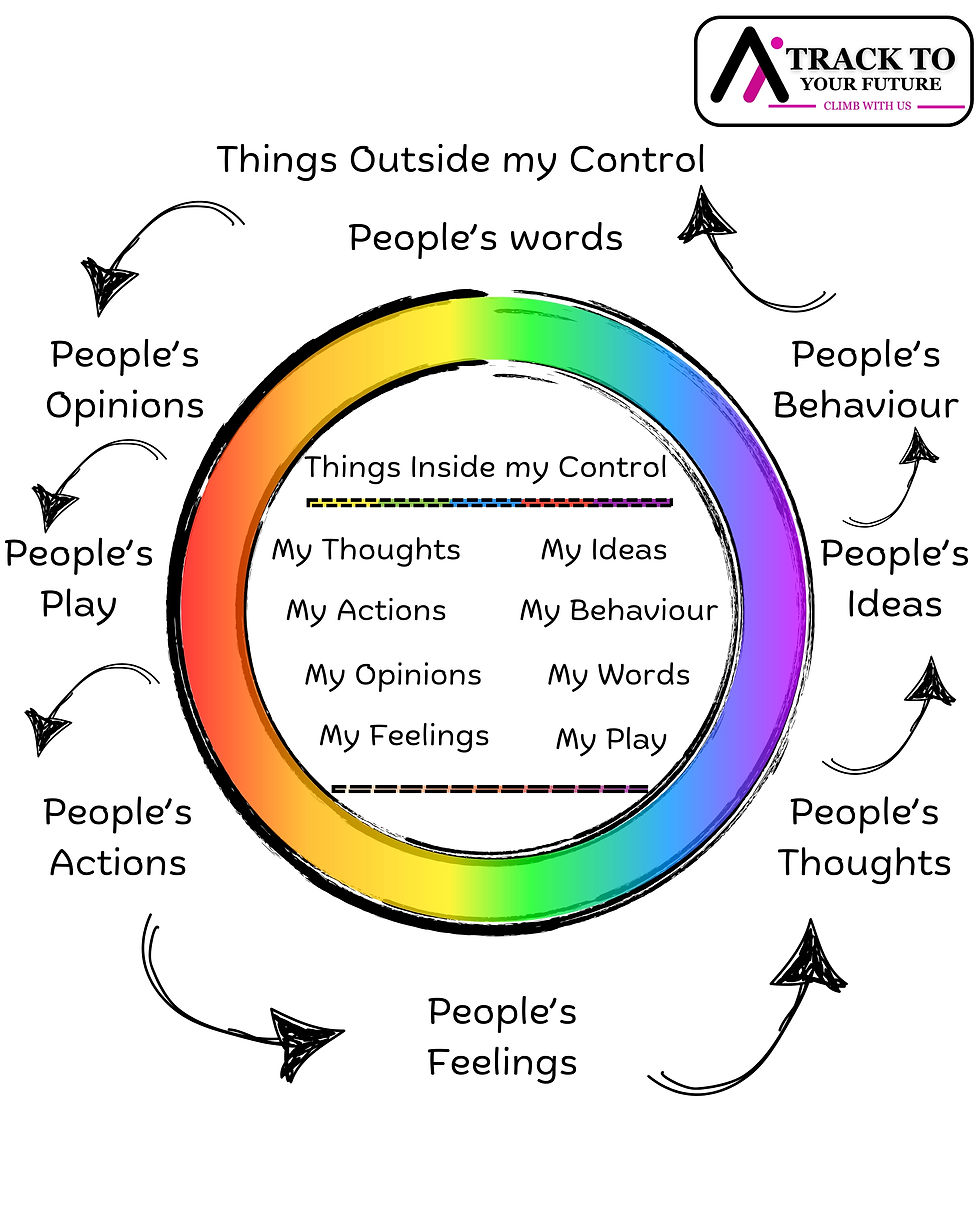How to Successfully Navigate Career Transitions in Times of Uncertainty
- Track To Your Future

- Nov 23, 2024
- 4 min read
In today's rapidly changing job market, career transitions can feel overwhelming, especially during unpredictable times. Economic fluctuations, technological advancements, and personal changes often prompt individuals to rethink their career paths. However, these transitions can also open doors to growth, learning, and exciting new experiences. Knowing how to navigate through these uncertain waters is essential for anyone looking to reshape their career.
Embrace Change as a Constant
Change is a natural part of professional life. Accepting this reality can significantly reduce the anxiety often associated with transitions. Instead of perceiving change as a setback, view it as a chance to rethink your career direction and explore new possibilities.
Adopting a proactive mindset is crucial during times of uncertainty. Stay adaptable and open to fresh ideas while actively seeking opportunities to learn. For instance, if you are a marketing professional, consider exploring digital marketing if your industry is shifting towards online platforms. By embracing change, you can put yourself in a position to thrive during your career transition.
Assess Your Skills and Interests
Before you make a career move, it is essential to take a closer look at your current skills and interests. Knowing your strengths, weaknesses, and passions will guide your next steps.
Start by writing down your skills and experiences. Highlight those that excite you. For example, if you enjoy writing and have experience in content creation, explore jobs in copywriting or social media management. Reflecting on your cover stories or asking colleagues for feedback can also offer insights into how others view your abilities. This self-assessment will clarify your direction as you plot your career journey.
Research Your Options
Once you have a good understanding of your skills, the next step is to research potential career options that match your interests. Use online resources, industry reports, and professional networks to gather vital information about different roles and sectors. This will help you identify industries that are prospering, even during tough times. For example, industries like healthcare and technology have seen significant growth, with healthcare jobs projected to grow by 16% from 2020 to 2030, according to the Bureau of Labor Statistics.
Networking is a significant part of your research. Connect with professionals in fields that interest you, and don’t hesitate to attend virtual events or join online groups. Engaging with communities aligned with your aspirations can uncover opportunities you hadn’t considered. A single conversation can lead to a job lead or a new perspective on your career options.

Build Relevant Skills
Armed with your research, identify the skills you need for your desired career. Upskilling or reskilling can greatly enhance your chances of success. Look for online courses, webinars, or certifications relevant to your new path. For example, if you are transitioning into data analysis, consider platforms like Coursera or Udacity for suitable courses.
Volunteering or taking freelance gigs can also provide practical experience and build your portfolio. Not only does this showcase your commitment to growth, but it also helps you gain actionable experience that may make you more attractive to potential employers.
Create a Support System
Career changes can evoke a range of emotions. Establishing a support system is crucial for navigating this journey. Surround yourself with encouraging friends, family, or mentors who can provide guidance and motivation. Their understanding can boost your confidence and keep you on track.
Consider finding a mentor who has successfully made a career transition. They can offer insights, advice, and encouragement as you take steps toward your new path. Having a mentor who understands the landscape can make a significant difference in your journey.
Tailor Your Job Search Strategy
When ready to search for a new job, refine your approach for better results. Prioritize quality over quantity in your applications. Customize your resume and cover letter for each job, clearly showcasing how your skills meet the job requirements.
Use job boards, professional sites like LinkedIn, and industry-specific platforms to discover openings. Remember the power of personal networks; informing your contacts that you are exploring new opportunities can lead to job referrals, enhancing your chances of securing interviews.

Prepare for Interviews
When interview invitations start coming in, preparation is vital. Research common interview questions and practice your answers, emphasizing skills and experiences relevant to each specific role. You must clearly explain how your background prepares you for the new position.
Additionally, be mindful of the challenges that come with virtual interviews. Ensure your technology is working, and create a quiet, distraction-free space to present yourself effectively. Good virtual communication skills can enhance your overall interview performance.
Stay Resilient and Positive
The journey of transitioning careers, especially during uncertain times, requires resilience. The job search can sometimes be drawn out and disheartening, but maintaining a positive outlook is crucial. Celebrate small achievements along the way; whether completing a new course or getting an interview, each step counts.
Focus on what you can control: your mindset, skill development, and work ethic. Develop a routine that includes self-care and enjoyable activities. This balance is vital for staying motivated and keeping your spirits up throughout your transition.
Final Thoughts
Navigating career transitions amidst uncertainty can be both challenging and rewarding. By embracing change, assessing your skills, researching options, building relevant skills, creating a support system, tailoring your job search, and maintaining resilience, you can successfully steer your career in a new direction.
Remember, transitions are not just about finding new work; they are about personal growth and discovering fulfilling opportunities. Stay committed to your development, keep learning, and approach this journey with an open mind. Your next career chapter may be just around the corner, filled with exciting potential and new beginnings.
_edited.png)


